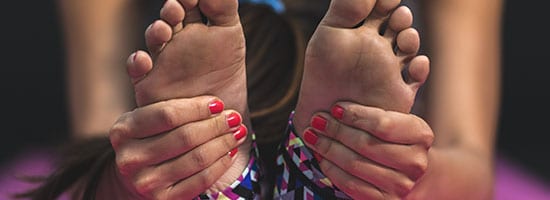Type II diabetes puts a unique strain on a person’s feet. Diabetics often lose sensation in their feet and toes, which puts them at a greater risk of infection and amputations. If you have diabetes, your foot health is especially important.
Choosing Footwear
As a Type II diabetic, it is critical that you avoid going barefoot or even without socks on a daily basis. Even if you are at home, you should wear closed-toed shoes and socks.If possible, find footwear that is specifically designed for diabetics.
These shoes and socks will protect your feet from injuries like smashing a toe or suffering a deep cut that could get infected. They also will provide the right amount of ventilation, which will prevent your feet from getting too dry or too moist, either of which could cause cracked skin, fungal growth, and other problems.
While it may be tempting to go barefoot in the summertime or wear comfortable slippers at home, you should always protect your feet by wearing shoes and socks made just for diabetics. This measure alone will greatly reduce the risk of you suffering an illness or injury that could increase the likelihood of an infection or an amputation.
Check Your Feet Every Day for Signs of Injury
You should also inspect your feet everyday to make sure they have not suffered a cut or bruise that could fester into a lingering infection or deep wound. Diabetics often do not heal as quickly or as well as non-diabetics.
In fact, a small cut could quickly deepen into a wound that must be operated on to prevent tissue loss. If you notice any signs of injuries, even something as simple as an ingrown toenail, you should notify your diabetic doctor immediately and seek prompt treatment for it.
Stop Smoking
Finally, you can prevent further loss of circulation to your feet by stopping smoking. Smoking cuts off the blood supply to most parts of your body including your feet. When you stop smoking, you may restore some of the blood flow back to your feet and lower your chances of amputations in the future.
Diabetics face serious risks to the safety and health of their feet. These simple measures can prevent injuries and illnesses that could lead to dangerous infections and wounds that may result in your toes or feet having to be amputated.
